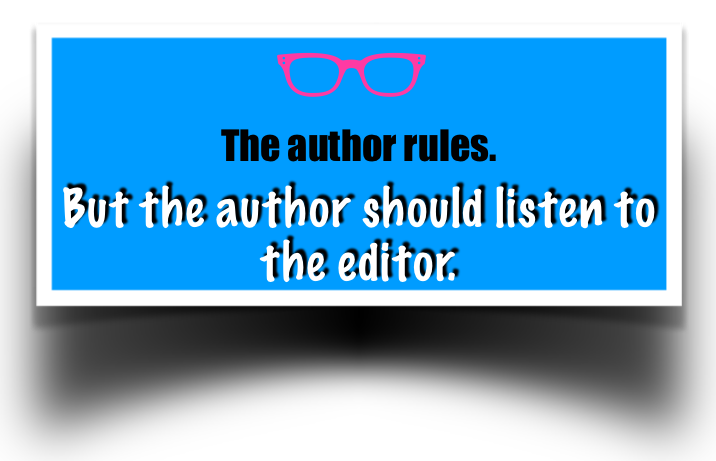There is more to a “book edit collaboration” than simply setting a price for services. A line or developmental or substantive editor will provide suggestions for improving your fiction or non-fiction manuscript. This can lead to a back-and-forth discussion on the merits. Personally, I suggest improvements based on a rationale because there should be a reason for every edit.
Book edit collaboration includes accepting or rejecting suggestions.
In a perfect world, there would be no need for book editors. Every manuscript would soar! But in the real world, it’s good to have a second pair of eyes. Generally, I’m fortunate that authors usually turn over their manuscript and let me at it. Some are not interested in seeing the manuscript until I’m finished. Others want to see every three chapters or so. I use a color-coded tracker in a Word document, so every edit I make is visible.
The author-editor relationship is based on trust and mutual respect. Editors provide consulting services, but the authors retain control of the projects. They decide how they want their book presented to the world and are responsible for the content. They’ve paid for a level of editing, whether that be copyediting, line editing, developmental editing, or even substantive editing, but the editor does not make those final calls. The author decides what advice to follow and what to scrap. Authors can override any edit at any time.
In the cases of line, developmental, and substantive editing projects, my job is to provide suggestions that elevate the manuscript. My goal is also to honor the author’s voice, whether I’m writing in that voice or editing in that voice. All the while I balance the author’s writing style against the conventions of English, best practices, tried-and-true formulas, etc. Sometimes during first round editing I might experiment a big to improve the flow or make sense of the big picture—all of this is squared away by the time I make second and third pass-throughs.
In short, I offer my best advice and tweaks through at least three rounds of editing, as well as editing explanations, which is normally accepted and becomes part of the book.
But not always …
Sometimes authors resist changes to their manuscript.
For many, writing a book is a monumental achievement. It’s like giving birth to a baby after a long and exhausting pregnancy. You, as an author, want it edited and published. I, as an editor, want it to be the best version of itself so that it receives good reviews after it’s published.
Still … it is your baby. If you struggle with relinquishing control to an editor, you are not alone. It is hard to trust other parties as they handle your baby. A good editor is sensitive to these feelings, which is what a book edit collaboration is all about.
As hard as it may be, the mission is to set aside ego and achieve the best result. Good authors care about their readers. If an editor questions or cautions against usage, take heed rather than hang onto something that could be improved. Honestly, most authors are practical and take this advice … but not all.
Never a Battle
So, good editors (and authors too) want to make a positive mark on the literary frontier. If I feel strongly about an editing decision, I say so. If the author disagrees, I share my rationale. If the author still disagrees, I stop short at pushing back. A good book edit collaboration is just that — a collaboration, and sometimes a negotiation, but never a battle.
If my edits are rejected by the author twice, then we move on without further arguments from my end. I simply acknowledgement that the author is in charge of how the manuscript rolls out. So … the book might not be all that I personally envisioned for it, but I consider it a success if it pleases the author. Perhaps it’s not perfect, but the collaboration concluded with a happy client — and that counts for something!
Contact me for book editing rates and a consultation for your special project.
Send an email at melaniesaxton@icloud.com and we’ll discuss the ins and outs of your project.

